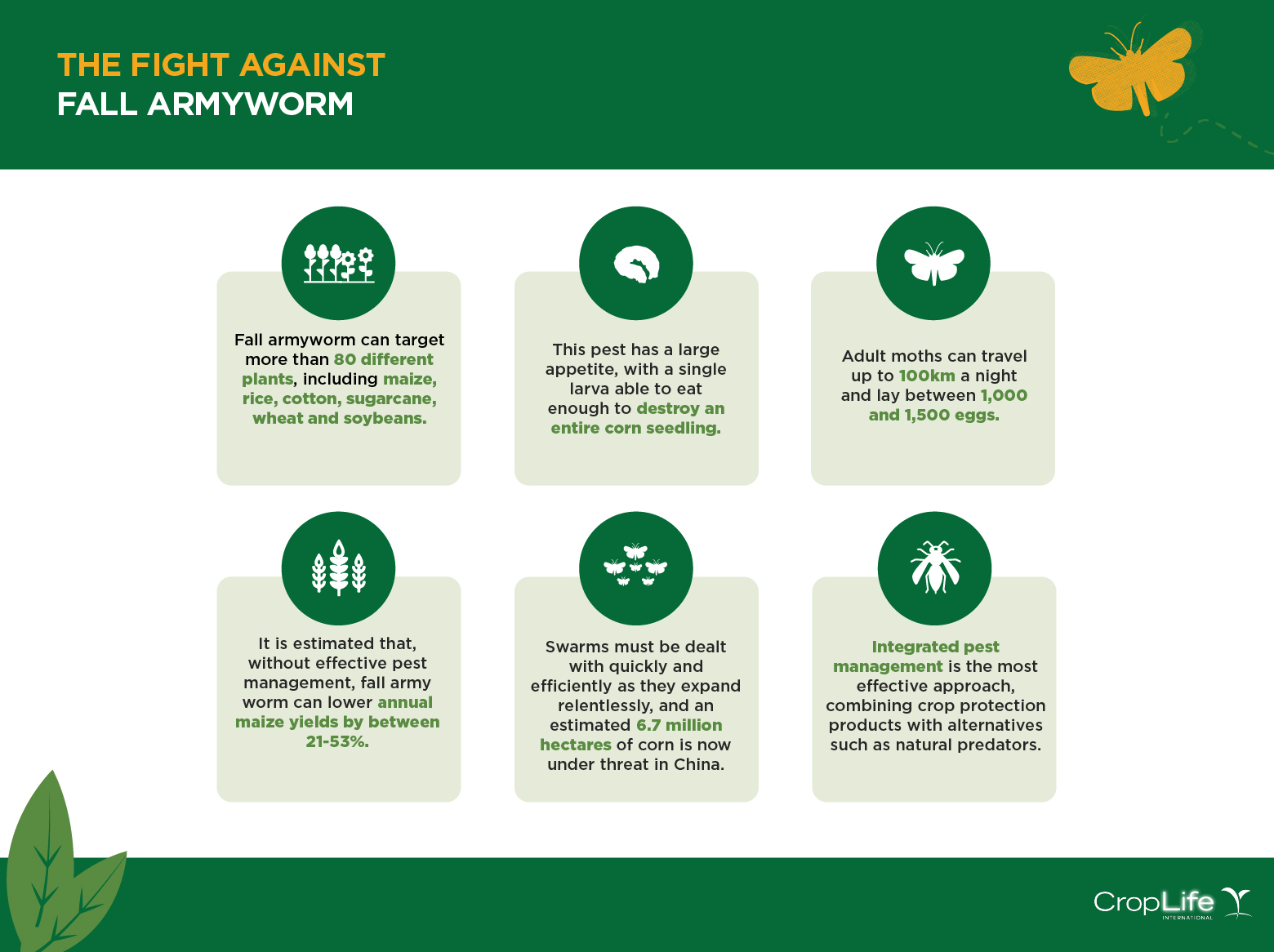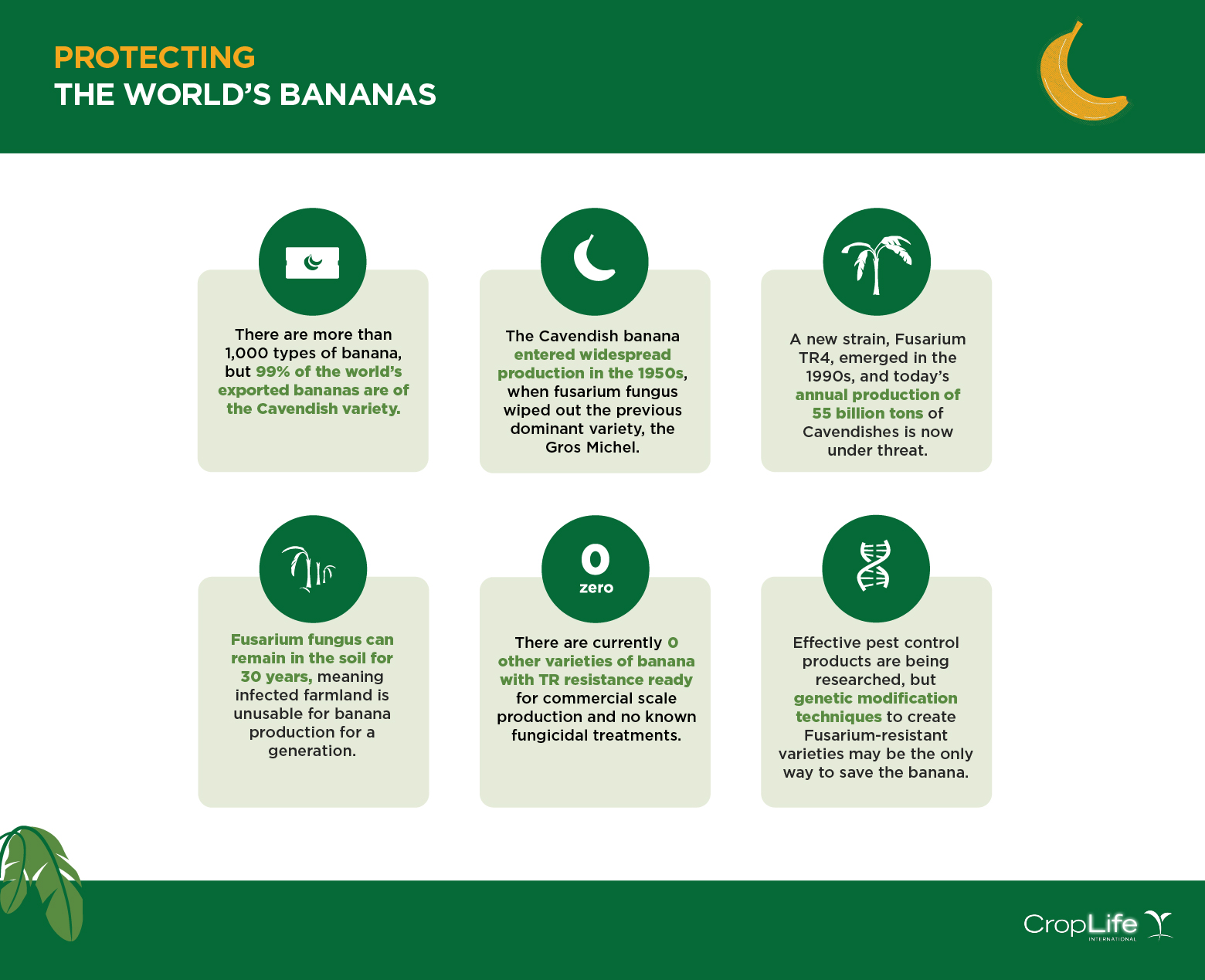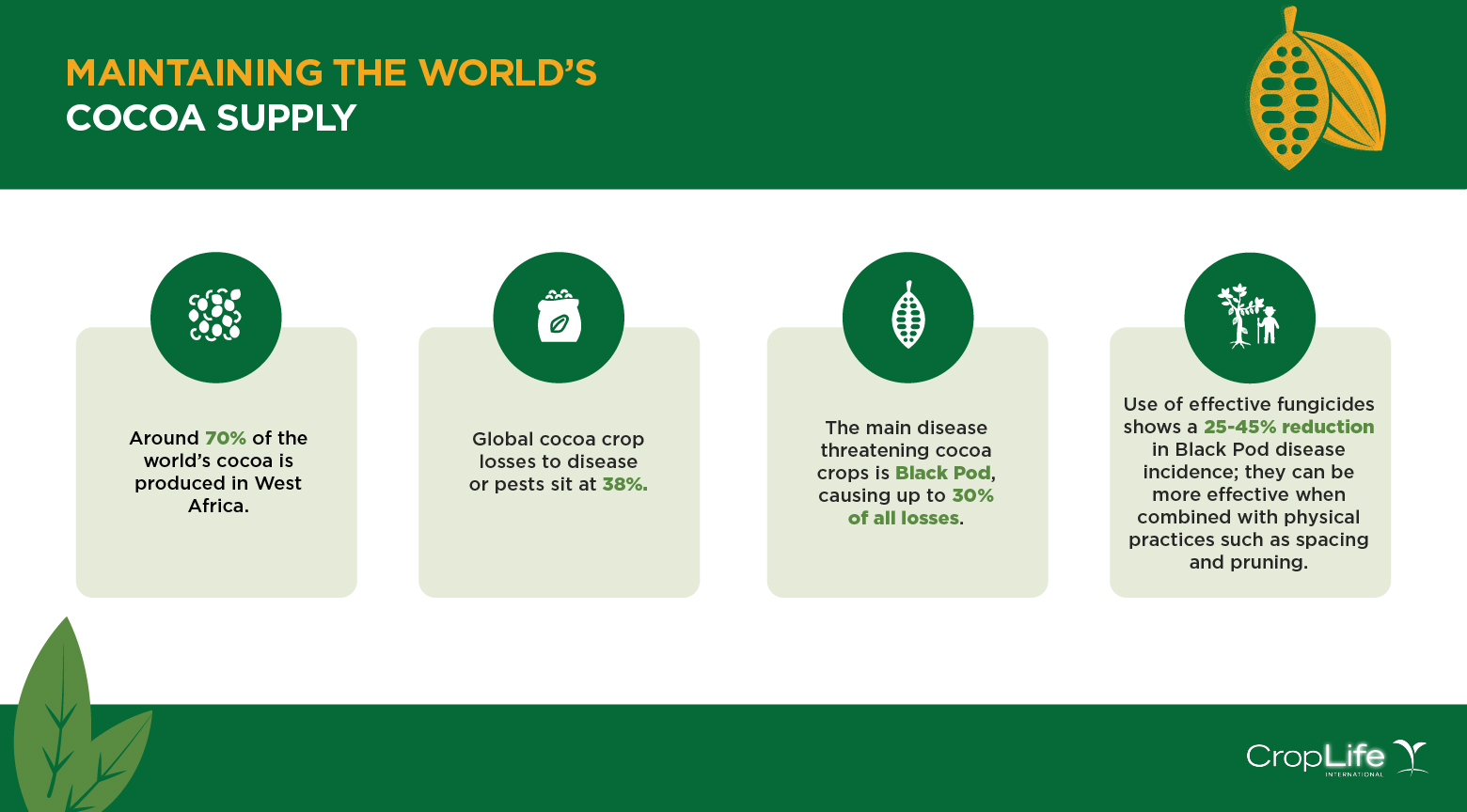By: CropLife International
Across the globe, farmers are protecting our global food supply from the world’s most destructive pests. Check out these infographics below to see how plant science is aiding farmers in their fight and providing sustainable approaches to pest management.
DESERT LOCUST
The Desert Locust is a serious threat to the food security of East Africa, and crop protection products play a key role in preventing hunger and starvation in the region.
FALL ARMYWORM
Fall Armyworm is native to the tropical and subtropical regions of the Americas and has been found in Eastern and Central North America, South America, and most recently, detected in Africa and Asia. Because its mature moths can fly almost 500km (300 miles), it could quickly migrate from Africa into southern Europe.”

Farmers in China are looking to plant science innovations to help fight the fall armyworm, like FAW–resistant biotech corn, and other IPM technologies in their agricultural toolkit.
FUSARIUM TR4
Already threatening farmer livelihoods across Asia and Africa, the TR4 fusarium fungus is now hitting South American banana plantations and has no known fungicidal treatment, but there is hope thanks to the advancement of genetic modification technologies.
Given the rapid spread and devastation of Fusarium TR4, genetic engineering tools offer an effective, safe, and viable way to develop resistant varieties. Genetic engineering, which facilitates the transfer of useful genes across species, has been shown to offer numerous advantages to circumvent the natural bottlenecks to breeding bananas for its improvement.
The example of the Gros Michel and the Cavendish banana varieties highlight the significant threat posed by a pest that has no control method and the importance of an effective and accessible agricultural toolkit, including genetic modification technologies.
BLACK POD
West Africa is a powerhouse of cocoa production, but one of the world’s most beloved crops is facing immense pressure from pests, and farmers are working harder than ever to keep the supply of cocoa going, on top of facing climate related stressors.
West Africa is also suffering under the Cacao Swollen Shoot Virus (CSSV) which can kill trees in just three years, and has no cure. It is estimated that since 1946 more than 200 million cocoa trees have been cut down due to CSSV.
Ensuring that West Africa farmers have access to the full agricultural toolkit will enable them to effectively meet the challenge of pest management on their cocoa farms. Without flexible and accessible options, the world’s supply of one of its more treasured crops could be under serious threat.
SPEARGRASS
Integrated pest management is critical in dealing with some of the toughest of pests, like speargrass, that would otherwise run rampant destroying millions of hectares of crops. It is critical for farmers to not only have access to, but be educated on the variety of plant science technologies that are available to them.




